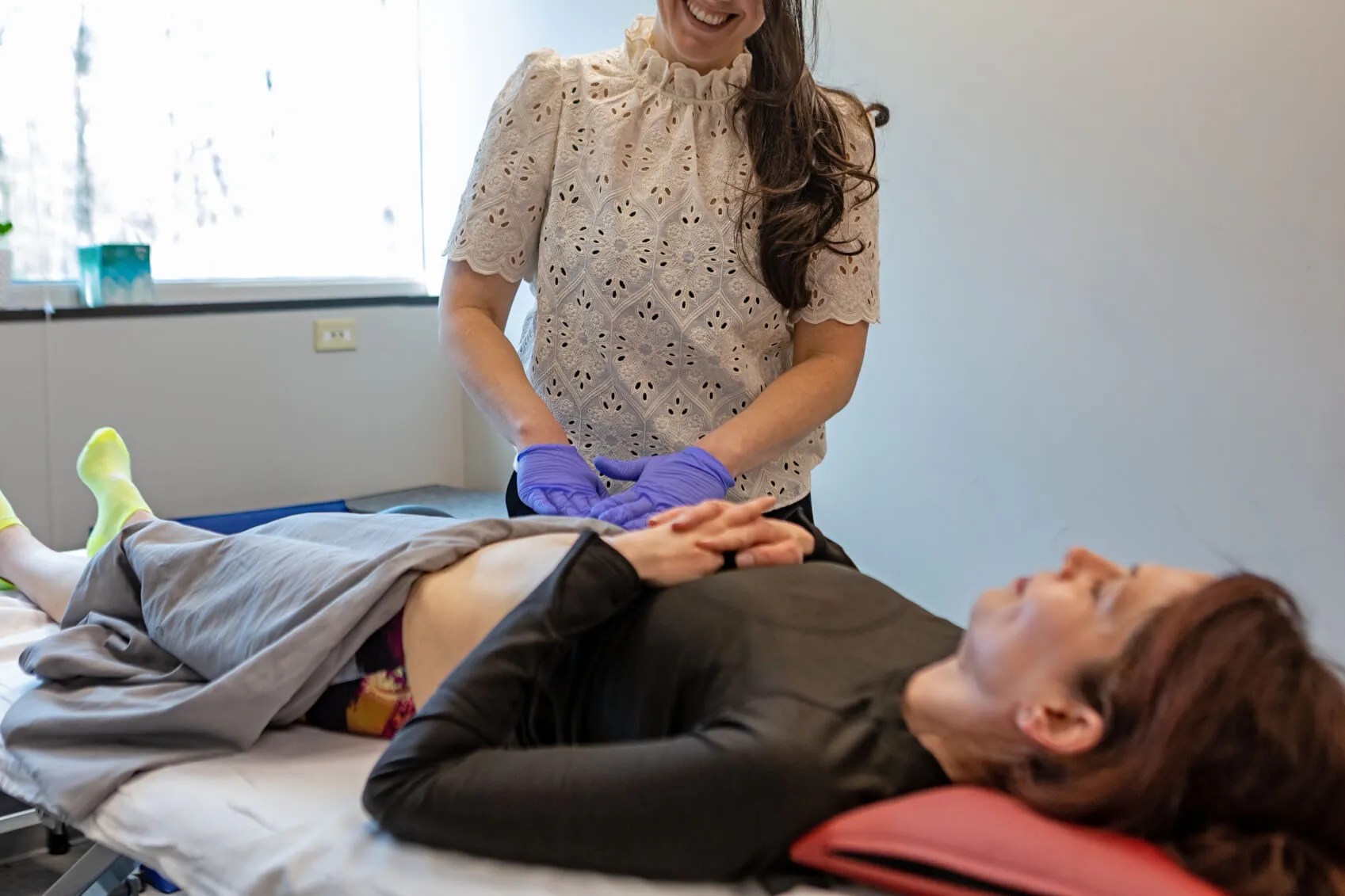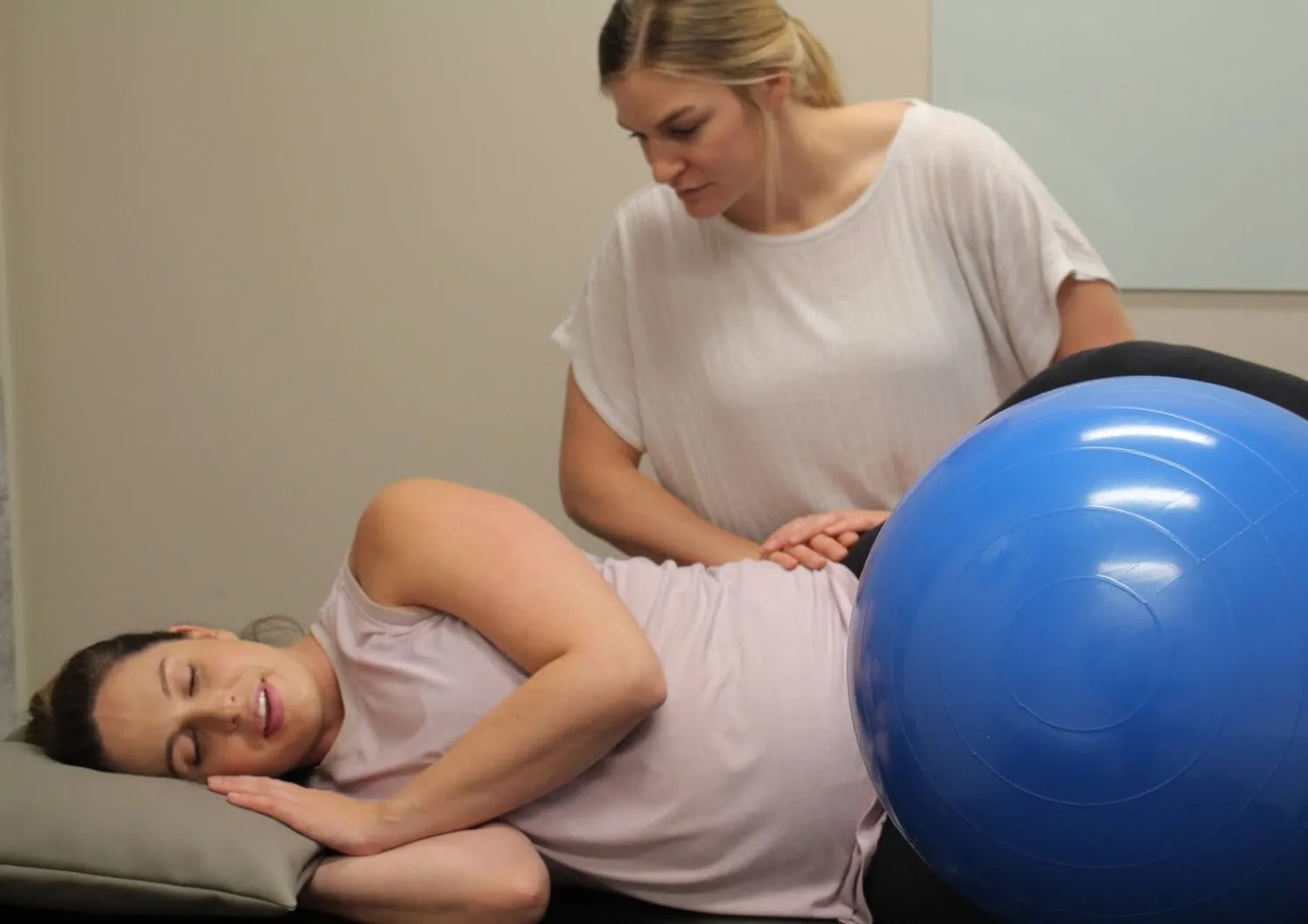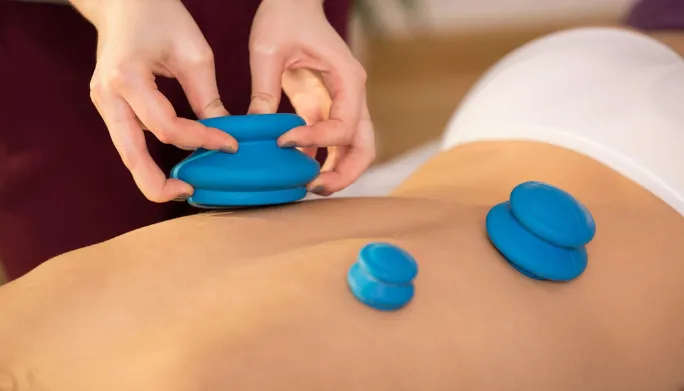Boise
775 S Rivershore Ln Ste 220
Eagle, ID 83616
P (208) 629-1030
F: (208) 346-7618
E: info@tvpelvichealth.com
Pelvic Floor Therapy in Boise
Let our team help you heal naturally
Most patients feel relief after their first session!




Top Rated Pelvic Floor Therapy in Boise
At our practice, we specialize in pelvic floor therapy and helping you achieve lasting relief from pelvic pain, sexual dysfunction, urinary and bowel conditions, orthopedic pelvic pain, and pre- and post-natal conditions.
Our highly trained and licensed therapists are committed to providing personalized treatment plans and education to help you understand how to care for your body and prevent future symptoms. We offer several treatment options and are here to support you every step of the way. Let us help you on your path to optimal health and wellness.
Take our free Cozean Screening! Designed to determine if pelvic floor therapy could be a valuable treatment option for your individual needs.

Personalized Care from Our Team
There are no two people exactly the same. Therefore, symptoms can be different even though they may affect the same body part. Our expert medical team will evaluate your condition and create a customized treatment plan that will get you back on track to being your best. Our staff will guide you through each visit with personalized attention and dedication.

Our Proven 4-Phase Recovery Program

Symptoms
Dealing with issues related to pelvic floor health can be a challenging and distressing experience, leaving you unsure of where to seek assistance. As specialized pelvic floor therapists, we understand the impact that pain can have on your daily life. Our dedicated team will provide personalized, one-on-one care to help you uncover the underlying causes of your discomfort with a tailored treatment plan that aims to alleviate your pain promptly and effectively. It is worth noting that our patients typically experience a significant reduction in symptoms within just six visits or less, highlighting the effectiveness of our approach.

Prime
We understand that resolving pelvic health issues is a crucial goal, but maintaining motivation and progress can be challenging once initial relief is achieved. It’s common to feel stuck and unsure of how to regain momentum. As pelvic floor therapists, we specialize in Phase II of your journey, focusing on restoring your mobility, flexibility, and strength. Our dedicated guidance will empower you to overcome any obstacles and continue your path to success. By working together, we’ll ensure you are well-prepared for optimal performance and equipped with strategies to prevent future injuries.

Perform
We understand how disheartening it can be to experience pelvic floor issues that keep you from your usual activities. Being unable to participate in the things you love can be overwhelming, especially when it feels like everyone else is moving forward while you’re left behind. As pelvic floor therapists, we specialize in helping you navigate these challenges. Our primary goal is to assist you in rehabilitation, enabling you to reclaim your former self as swiftly as possible. Rest assured, with our support, you’ll feel like yourself again in no time, ready to fully engage in the activities you love.

Prevent
Facing pelvic floor symptoms can be a tough experience, and the last thing you want is to go through the same discomfort again. It’s natural to worry about recurrent symptoms – many people do. That’s why our Pelvic Floor Therapy specialists focus on providing you with the tools necessary to manage and prevent future issues related to your pelvic floor. Our goal is to help you recover effectively and securely, minimizing the risk of recurring symptoms.
Success Stories & Testimonials
Meet Our Team
Dr. Chelsea Beyers
Doctor of Physical Therapy
Dr. Julie Dunn
Doctor of Physical Therapy
Dr. Kim Kutzner
Doctor of Physical Therapy
Treatments

Birth Preparation
We understand the importance of preparing for birth. Whether you’re a first-time mom or have gone through childbirth before, it’s essential to prioritize your physical health during pregnancy to stay comfortable…


Cupping
Cupping is not a new therapy although it had a recent surge in popularity as high-profile athletes have been seen with the characteristic large red dots on their skin during sporting events.

Diastasis Recti
During pregnancy, 100% of women will develop this at some point by the end of their pregnancy. However, the degree to which it will persist is variable. If never adequately addressed, an individual may…


Energy Medicine
Energy medicine is a powerful, holistic approach to healing that focuses on the body’s natural energy systems. As a pelvic floor therapist specializing in energy medicine, We are here to support you on your…

Men’s Health
Often times conversations with pelvic floor problems are centered around women. However, men can experience troubles associated with the pelvic floor and adjacent structures too.


Moving Towards Menopause
We will create a customized plan to help you strengthen the pelvic floor, improve your control, minimize aches and pains keeping these changes from slowing you down.

Neural Manipulation
Neural manipulation is a gentle hands-on technique that evaluates and treats the nervous system and all associated nerves. Addressing these neural restrictions help to relieve pain, improve range of motion…


Pelvic Floor Therapy
If you’re experiencing discomfort, pain or other issues related to your pelvic region, you’re not alone. Pelvic floor dysfunction is a common condition that affects many people, particularly women who have given birth.

Visceral Manipulation
Visceral Manipulation is a form of manual therapy that involves the gentle manipulation of the body’s internal organs, such as the liver, kidneys, stomach, and intestines. This technique aims to improve…


Postpartum Recovery
As a new mom, your body has gone through significant changes during pregnancy and childbirth. While the arrival of a new baby is an exciting time, it can also be physically and emotionally challenging.

Live Pain Free in Boise
Our team understands that you want to live an active lifestyle that is comfortable and capable. Your body must work in order to achieve that. You are experiencing pain, injury or weakness, which can make you feel confused and frustrated.
We believe that you deserve a body that is fully functional. We know what it is like to be injured, which has led to our success in helping thousands of people get back to their active lives.
This is how we do it:
- Tell us your story
- Get your customized plan.
- Start feeling better.
- Conquer your goals.

Get the Pelvic Health You Deserve
Our philosophy centers around identifying and addressing the root cause of an issue, leading to long-term solutions. Our approach emphasizes the benefits of hands-on manual pelvic floor therapy in facilitating the healing process.
Collaboration is key; we value teamwork and prioritize listening to our clients’ unique needs and objectives. Our aim is to empower our clients with the knowledge and resources needed to effectively manage symptoms and prevent future recurrences.

Frequently Asked Questions
What is the pelvic floor?
When the muscles are tight, a person may experience pain within the pelvis, difficulty emptying either the bowels and/or bladder, pain or inability to tolerate intercourse, marked pain during gynecological exam, abdominal pain and more. During pregnancy, as with many other areas, there are numerous changes that may occur. Combined with the stress these muscles undergo during delivery – even with cesarean sections – it is inevitable for the muscles to need a little TLC afterwards.
What is pelvic health therapy?
Pelvic health physical therapy focuses on musculoskeletal dysfunctions within the pelvis, hips, abdomen and the adjacent joints. Treatment may also include working to restore posture, general strengthening of core and hips, relaxation and down-training techniques, manual therapies to the external and internal muscles including myofascial release, scar tissue mobilization, visceral mobilization and much more.
The goal of pelvic physical therapy is to restore the length, function and activation of these muscles in a more optimal fashion. This will allow for more unrestricted participation in all of life’s activities – including jumping on trampolines.
What to expect for the first visit?
For the first visit we will review your general medical history, birth history, bowel, bladder and sexual function, orthopedic issues, etc…anything that could influence your function and return to activities. Following this, we will complete a physical exam, both of the orthopedic and pelvic floor muscles.
To adequately assess the pelvic floor muscles, a brief internal assessment is performed to determine if these muscles are tight and/or weak. The physical exam helps us adequately identify contributing factors to your symptoms and from here we develop your personalized treatment plan. An internal assessment is not necessary at every treatment. Most often there may be 1-2 assessments needed, depending on what the primary problem is and how well someone can contract the muscles.
If a patient is experiencing vaginal, rectal or lower abdominal (bladder) pain, routine internal assessments are the most effective method for treatment. However, even diagnoses that are in large part involving the internal muscles benefit from working on external structures such as the thighs, abdomen, glutes or back.
How often do I need therapy?
If you are experiencing significant orthopedic aches and pains, it can be worthwhile to be seen two times per week until we get things better managed. As you get better, we schedule you less frequently until you feel you have all the tools you need to succeed and are feeling better overall.
I've done Kegels before and they never worked for me.
NOTE: The common misconception that pelvic physical therapy is only about Kegel exercises is untrue. Although exercising the pelvic floor muscles is important, there is much more to optimizing function. Finally, it is important to be assessed by a therapist to determine if Kegels are appropriate for you as someone who is experiencing pain or has muscles that are already tight, strengthening these muscles may be counterproductive and cause more problems.
Benefits of therapy after delivery.
For the vast majority of women, if they don’t retrain those muscles to functioning in the proper alignment and positions again there can be lasting implications. Worse yet, symptoms may only begin to arise much later in life. The truth is, that if we don’t focus on the correct recruitment and activation pattern we will continue to reinforce the dysfunctional movement and stability patterns that are developed through the slow 9-month progression of postural changes called pregnancy.
Even women who are not experiencing symptoms benefit from participating in a couple sessions of pelvic health physical therapy. Countries who offer pelvic health services as a standard of practice to postpartum women have a decreased rate of incontinence, prolapse and many other pelvic floor issues throughout the lifespan. Just as other muscles need to be exercised routinely to maintain wellness, the muscles of the pelvic floor need to be exercised consistently as well. As we age, our muscle fibers decrease in quality as well as quantity. You may not have any symptoms at the moment, but as the muscles age symptoms can then begin to appear.
The strain of pregnancy and delivery is followed by sleepless nights feeding and/or nursing the newborn in poor postures and adding stress to the shoulders, neck, back, etc. Pelvic health therapy after pregnancy isn’t just for the pelvis. It’s for the whole body and about restoring the alignment and efficient movements of each woman so they can return to their normal activities.
But what if I "only" had a cesarean section?
Unfortunately, our bodies don’t just bounce back to their normal function. We must relearn and retrain the muscles to function properly again. Without coordinated training, you will continue to move within the abnormal strategy. Additionally, your abdominal wall was cut through which can greatly impact the strength and recruitment of these muscles.
Is it normal to have leakage after having kids?
This is especially true with jumping, coughing, sneezing, etc. However, this is a large misconception. It is very common for this to occur, but it is not normal. Nor is it normal to leak gas. Pelvic health physical therapy helps to strengthen and address any other contributing factors to assist with improving the control to sphincters of the bowel and bladder.
What other diagnoses can pelvic health therapy address?
As you can tell, there is an array of symptoms that may occur and that pelvic health therapy can address including, but not limited to, the following:
-
Coccyx pain
-
Constipation
-
Diastasis Recti Abdominis
-
General weakness following pregnancy
-
Hip, low back, shoulder pain and/or headaches
-
Irritable Bowel Syndrome
-
Nursing considerations
-
Painful intercourse
-
Pelvic Organ Prolapse
-
Urinary / Fecal Incontinence
-
Urinary Urgency / Frequency
-
Vaginal pain or tightness
When is it appropriate to start pelvic therapy after delivering?
Whenever you are ready! For orthopedic issues, if there is something that is bothering you and impacting your ability to comfortably navigate through your new routine with your baby, it can be helpful to start sooner and resolve any of those limitations, so you can focus your attention on more important things.
For internal pelvic floor assessment and treatment, it is best to wait until your six-week check up to get the all clear from your provider that things have healed well. Prior to that six-week checkup, we can discuss several strategies and techniques to optimize healing and improving bowel or bladder function that are commonly affected after delivery.
What if I'm menstruating?
Do you take insurance?
Regardless of your network status, we will check your benefits so you are aware of what your cost estimate will be. For out of network plans, this means that we will do our best to determine your potential for reimbursement. Any reimbursement from insurance would be made directly to you by your insurance company. We are happy to also assist you in completing the necessary forms to receive reimbursement at no additional charge.
For all appointments, payment is due at the time of service.


